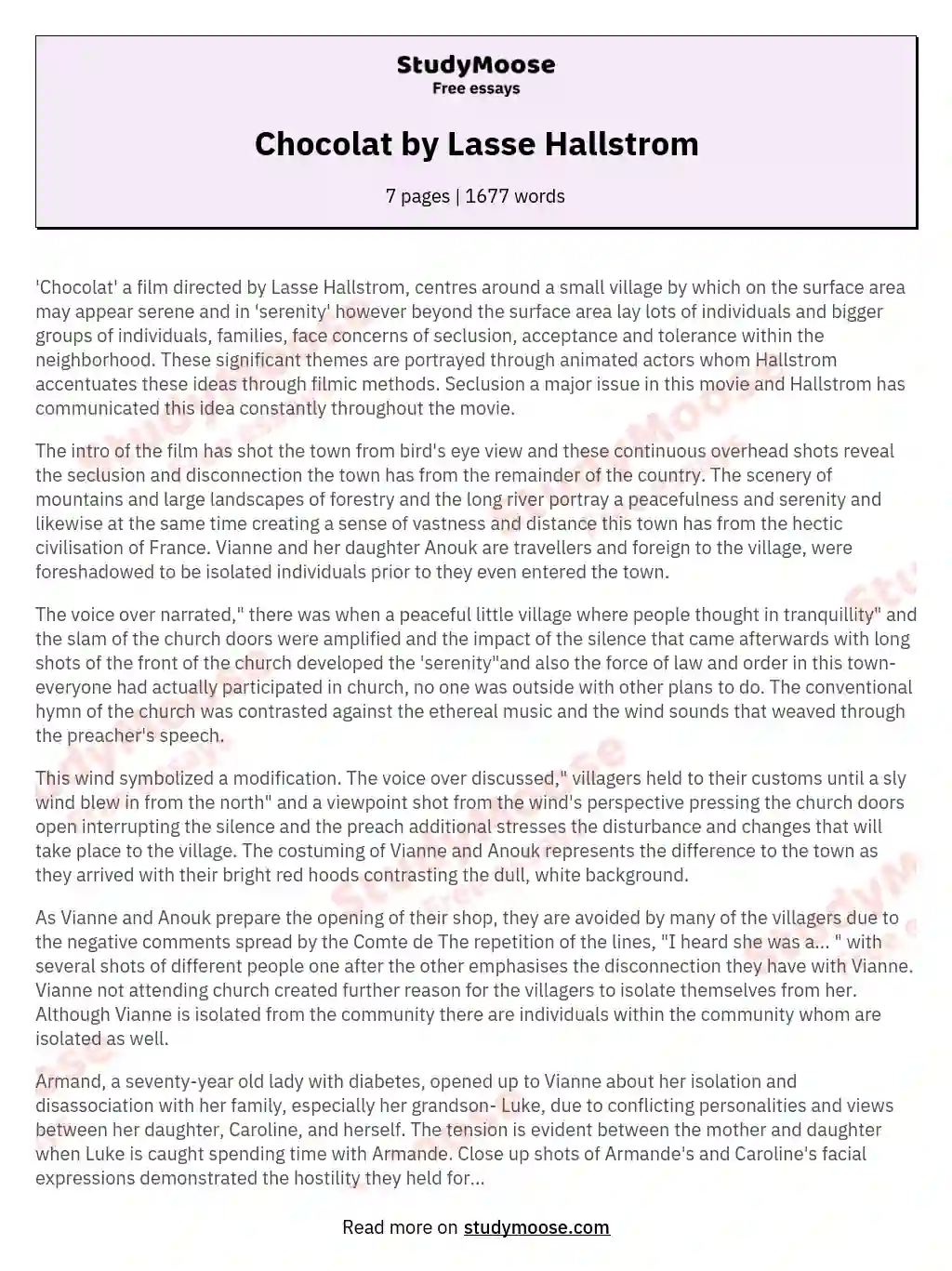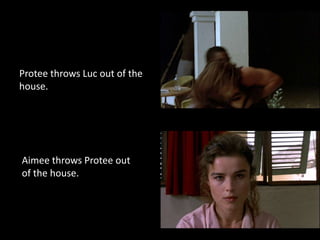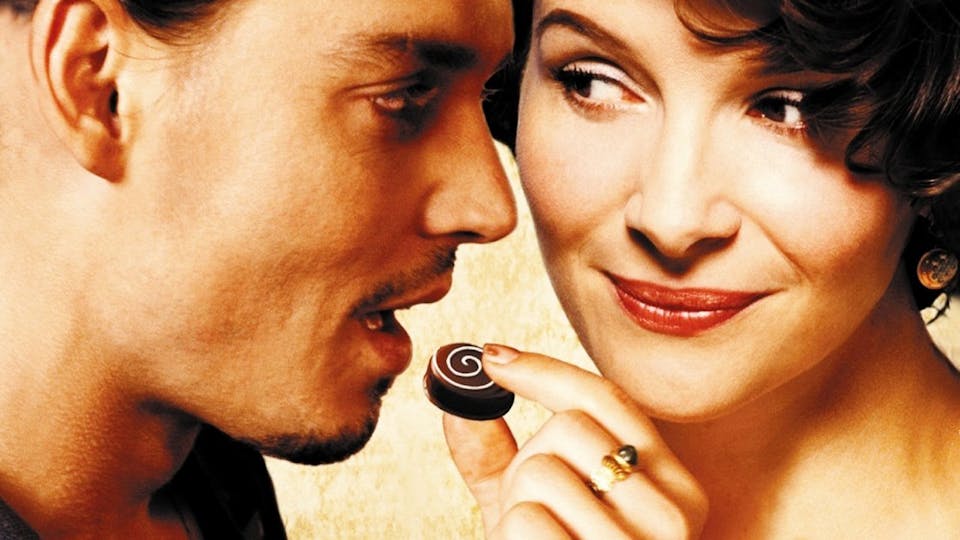Chocolat is a 2000 romantic comedy-drama film directed by Lasse Hallström and starring Juliette Binoche, Johnny Depp, Judi Dench, and Alfred Molina. The film is based on the novel of the same name by Joanne Harris, and follows the story of Vianne Rocher, a young chocolatier who opens a chocolate shop in a small French village during Lent, much to the dismay of the village's strict mayor, Comte de Reynaud.
One of the main themes of the film is the idea of tradition versus modernity. Vianne's chocolate shop represents a modern, progressive approach to life, as she uses her chocolates to bring joy and pleasure to her customers. In contrast, the Comte and many of the other villagers represent traditional values and ways of life, and they view Vianne's shop as a threat to their way of life. This conflict between tradition and modernity is reflected in the film's setting, as it takes place in a small, rural village in the 1950s, a time when many traditional ways of life were being challenged by the rapid changes of the modern world.
Another major theme of the film is the power of love and acceptance. Vianne's chocolate shop serves as a place of acceptance and inclusivity, where people of all walks of life are welcomed and treated with kindness. This is in stark contrast to the judgmental and exclusionary attitudes of the Comte and some of the other villagers, who view Vianne and her shop as an affront to their way of life. As the film progresses, Vianne's influence begins to spread throughout the village, and she helps to bring about a sense of unity and acceptance among the villagers.
In terms of character development, Chocolat does a good job of fleshing out its main characters and giving them depth and complexity. Vianne is portrayed as a strong, independent woman who is not afraid to stand up for what she believes in, even in the face of opposition. Johnny Depp's character, Roux, is also well-developed, as he is revealed to be a complex and troubled man who has a difficult past but ultimately finds redemption through his relationship with Vianne.
One of the standout elements of Chocolat is its beautiful cinematography, which captures the stunning beauty of the French countryside and the quaint charm of the village. The film also boasts a talented cast, with standout performances by Juliette Binoche and Johnny Depp. Overall, Chocolat is a delightful and heartwarming film that tackles important themes of tradition versus modernity and the power of love and acceptance.







